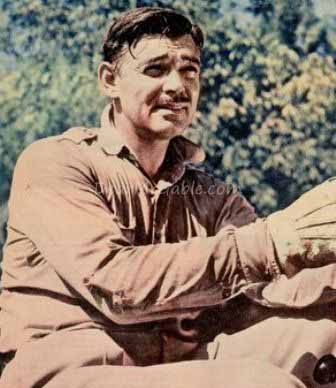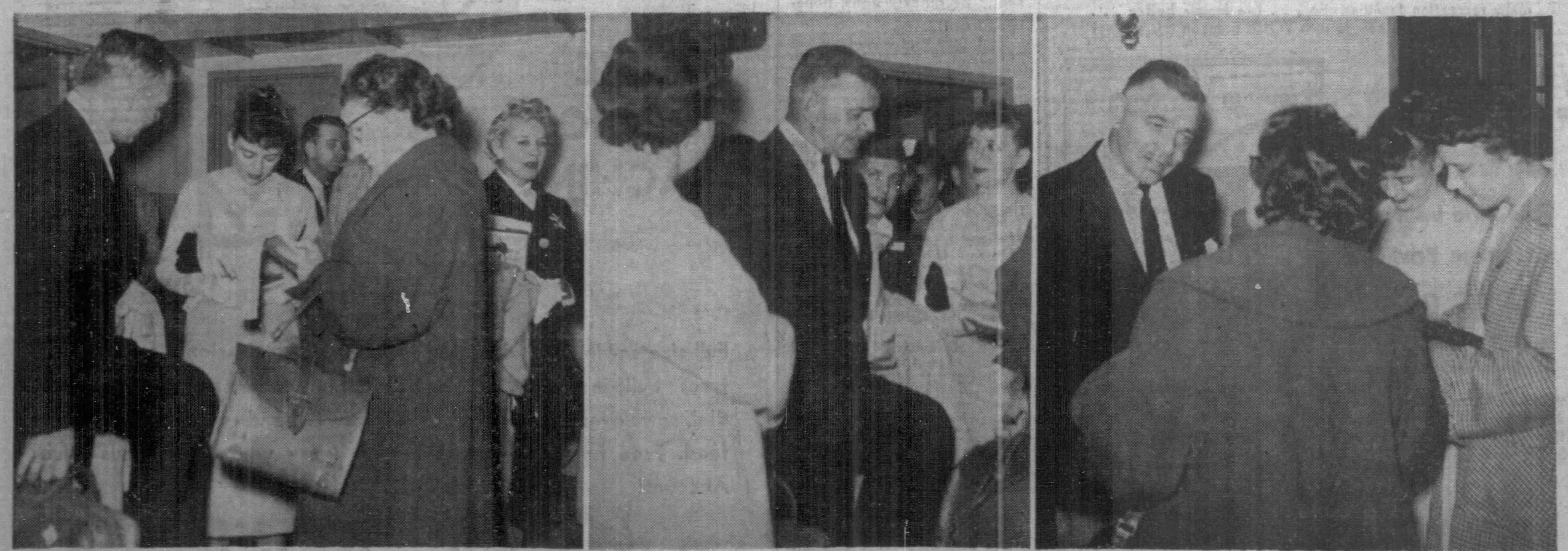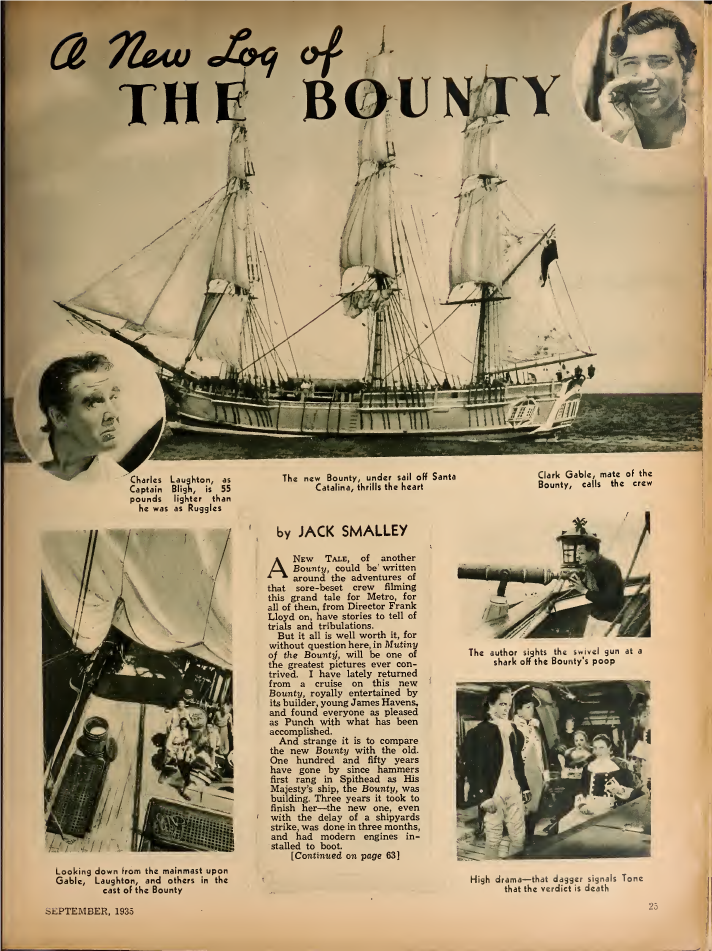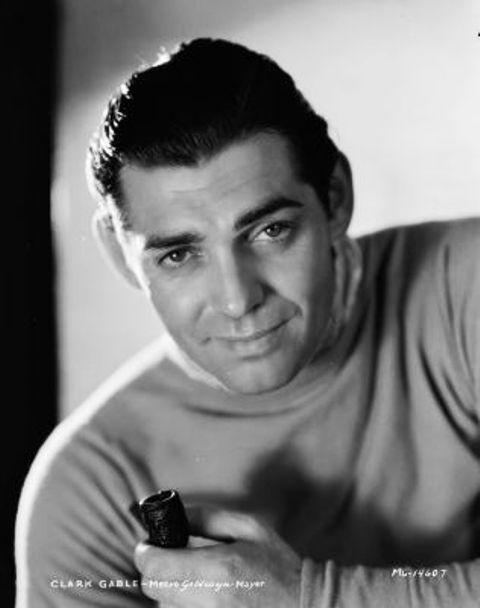{New Article} 1937: Life Ends at Forty!
This article is very typical of this period on Clark’s life. I have seen several interviews with him in the late 1930’s where he discusses his fear of the public turning on him and him having to quit movies and go into another frame of work. I think that is perhaps why Clark was considered “cheap” and lived simply: he was saving up for a rainy day. A rainy day that, fortunately, never came as we all know that Clark kept right on working and died at age 59, ten days after finishing his 66th picture.
“When I’m forty and my work in motion pictures is finished, what will be left for me in life?” Clark Gable asked that question and his gray eyes were dark with honest worry and bewilderment.
Only in Hollywood could a young, successful man in his middle thirties ask that question. Only there could he face the problem which Clark must solve when he reaches the forty milestone. In all other places and in all other businesses the average man of forty is just beginning to taste his real success. But, for Clark, that birthday means the end, of the beginning of the end, of his professional life.
“I don’t like to think of that time. It frightens me,” Clark said. “So far as I can see now, there will be nothing left for me in this life. I’ll have to find new interests, an entirely new scheme of living. I won’t have my work. And I’m sure that I don’t want to stop working when I’m still fairly young. But I’m afraid that I’ll be too old to begin at the bottom in some new field.”
“People say that ‘life begins at forty’. They tell us that the years before that age are merely a preparation, that our forties are the golden years when we will have adjusted all our values of living and can honestly enjoy life. That’s probably true in the life of the average business man. During his forties he eats the financial fruits of the work he has done during his twenties and thirties, while he goes on building toward more mature successes.”
“But it won’t be that way with me. My career will be ended. There will be no place to go in pictures, except down the ladder. And I don’t want to do that. I hope I’ll have the sense to leave Hollywood and the screen while I’m at least fairly successful. And, if I do that, the life I know today will end most certainly at forty.”
It’s rather funny, as by the time Clark had actually turned forty, he was at a high point in his life. Rhett Butler had secured his place in people’s hearts, he was married to Carole and happy. Forty was definitely not an age to dread for him. But, as we all know, his forties did become the most tumultous period in his life.
“The worst of it is that I’ll probably never have enough money to enjoy the long years of leisure when they’re forced upon me,” he went on slowly. “The good old days, when Chaplin and Fairbanks and Lloyd were founded, are gone forever. Today, after we pay our taxes to the government and our fees to agents and a dozen other expenses necessary to this particular business, there isn’t much left to save for the rainy day of the workless years. I live very simply. I don’t even own my own home and I do very little entertaining. But, even though I save every possible penny and invest as wisely and safely as I can, I don’t see how I’m going to put away enough money during the next few years to take care of myself during that long, after-forty period.”
“Understand, I’m not complaining. I thank Heaven every day that I was given my break in pictures. I’m grateful to Hollywood for all that it has given me. I’d do it all over again, if I had the chance. What would I have been, if I hadn’t found a place on the stage or screen? A truck driver, maybe. Or an oil driller. I worked at that once, you know. I have no illusions about my abilities and capabilities. I know I’m just a lucky fool. Life dealt me all the aces. But, I’ll confess, the future worries me.”
“I know I’m good for only so many years. Then I’m through. And what happens next? For the last year or two I’ve doing all the things which I should be looking forward to doing in the next ten or fifteen years. I’ve had freedom from financial worries, a comfortable home, enough leisure to hunt and fish when the spirit moved me and to do some travelling. If my life were like that of the normal, average man, all that would be before me, instead of behind me, when they put the forty candles on my birthday cake.”
He makes an interesting point, and you can’t blame him for worrying. Silent stars like Harold Lloyd, Gloria Swanson and even Greta Garbo, who made most of their money before the “talkies”, lived in comfortable retirement. They had mansions, traveled, and were rich despite not working for decades. Stars of Clark’s era tended to work and work and work for decades. Most of his co-stars worked into the 1960’s and 1970’s, even 1980’s.
It’s funny, I often hear people say that Clark was an ego-maniac. That could not be further from the truth, as articles like this prove. He was always very unsure of himself and if he came across as egocentric, he was just because he was scared of failing.
Well, we all know Clark had no reason to worry and would be just fine. I think he’d be rather surprised that he is still remembered and blogged about, 70 years after his 40th birthday!
Read the article in its entirety in the Article Archive.



